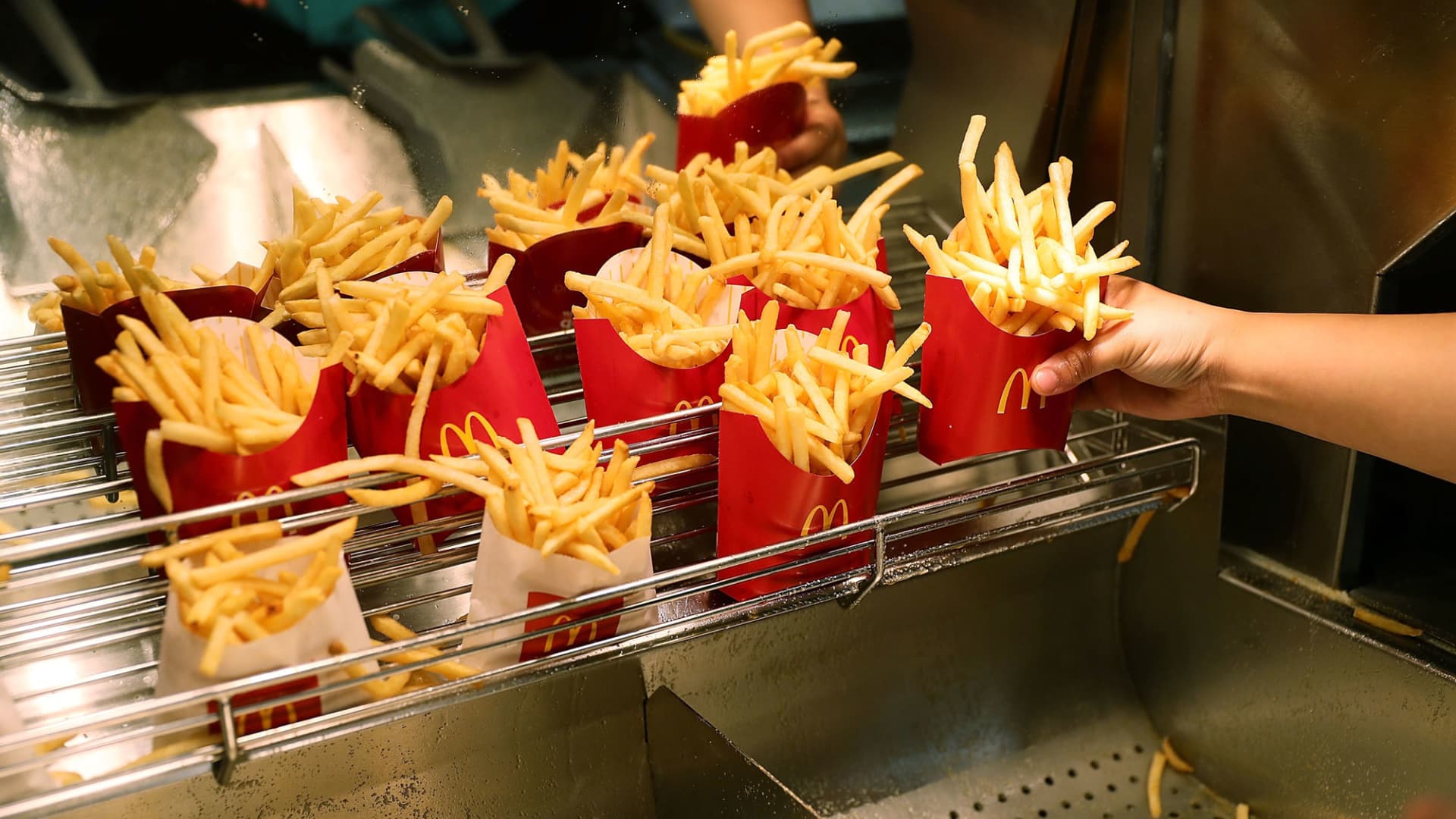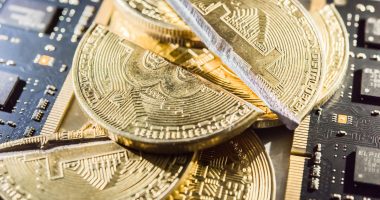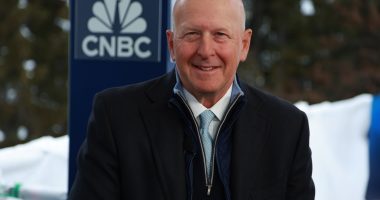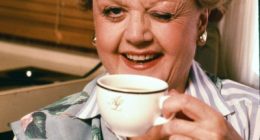
A McDonald’s crew member prepares french fries in Miami, Florida.
Getty Images
It’s a timeless question at fast-food counters: Do you want fries with that?
Responders continue answering affirmatively at a higher-than-average rate, a top potato supplier indicated. It underscores the resilience of consumer spending, even as inflation pinches pocketbooks and pandemic savings dry up.
A larger share of customers keep adding the iconic side to meal orders than in the past, according to frozen potato supplier Lamb Weston. Looking at the bigger picture, strength in the so-called fry attachment rate bolsters economic data, showing the willingness of average Americans to still shell out for everyday luxuries.
“The fry attachment rate has stayed pretty consistent,” said CEO Thomas Werner during the company’s earnings call on Thursday. “It’s been above historical levels for the past two, three years.”
This is just one example of how consumers keep purchasing despite mounting reasons to tighten purse strings, a phenomenon that’s puzzling economists.
Spending on retail and food services in America topped $700 billion in February, according to advance and adjusted government figures. That’s about 1.5% higher than the same month a year ago. And it’s a whopping 38.5% higher when compared with February 2019.
Rising wages and fiscal stimulus measures padded bank accounts during the early years of the Covid-19 crisis, prompting increased purchasing. But in more recent years, U.S. consumers have felt increasing pressure amid runaway inflation, elevated interest rates and the end of pandemic-era financial benefits.
And experts have been surprised by the unwavering propensity of Americans to use their cash, even as consumer confidence sours and fears of an economic downturn swirl. The choice to add french fries provides one case study of what some have dubbed “YOLO” or “revenge” spending, with the first term named after the acronym for “you only live once.”
Slowdown elsewhere
To be sure, there are signs of financial stress on consumers that impact monetary decisions around food. WK Kellogg CEO Gary Pilnick told CNBC earlier this year that cereal was trending as a dinner alternative while shoppers grappled with higher grocery costs.
Though customers still opt for fries, Werner said Lamb Weston’s volume took a hit nonetheless due to softer foot traffic overall in the restaurants it serves. That slide comes as consumers grow accustomed to increased prices for menu items as a result of inflation, the executive said. (Lamb Weston provides potatoes for large chains such as McDonald’s and Chick-fil-A, though Werner did not specify which companies are experiencing slowdowns.)
“On the one hand, fries remain as popular as ever with consumers,” Werner said. “But on the other hand, consumers are going out to eat less often.”
Lamb Weston on Thursday reported adjusted earnings and revenue for the fiscal third quarter that came in below estimates of analysts polled by FactSet. The Idaho-based company’s outlook for full-year performance on both financial measures also missed Wall Street forecasts.
Shares tumbled more than 19% in Thursday’s session, touching lows not seen in more than a year.
Correction: This article has been updated to remove an inaccurate reference to the timing of the Covid pandemic. This article was also updated with the correct spelling of Chick-fil-A.
Read More: World News | Entertainment News | Celeb News
CNBC










